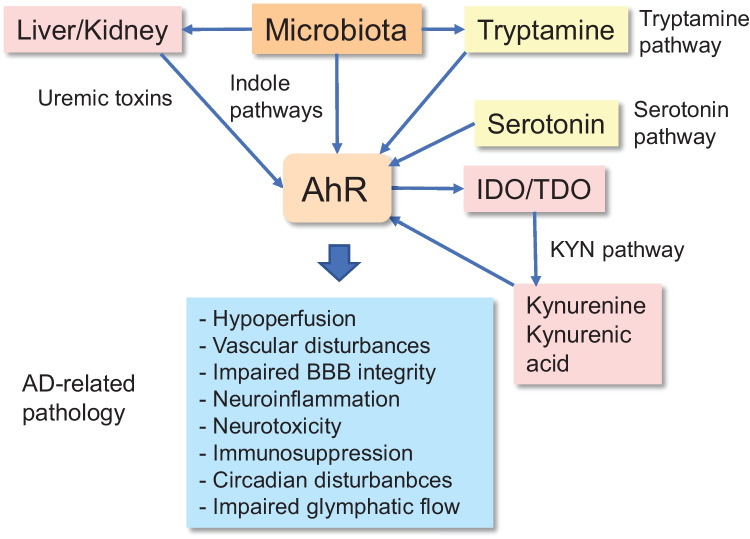Fig. 1.
Gut host-microbiota-derived tryptophan metabolites activate AhR signaling in the brain via different pathways and induce pathological changes observed in AD pathology. Microbial bacteria secrete indole molecules which via circulation can activate AhR signaling in the brain. Liver and kidney process the secreted indole molecules into uremic toxins, e.g., indole sulfate. Uremic toxins accumulate in the blood during chronic kidney disease. There is a close interplay between the microbiota and the host cells of the gastrointestinal tract, stimulating the generation of serotonin by enterochromaffin cells. Some microbes can convert tryptophan into tryptamine which activates AhR signaling. Gut host-microbiota interplay, e.g., in inflammation, activates the IDO1/TDO-induced KYN pathway which generates novel agonists for the Ah receptor. Subsequently, AhR signaling stimulates the expression of IDO1 enzyme inducing a positive feedback loop. Below, the pathological effects induced by AhR signaling are listed, many of which are also observed in AD pathology (see the text). Abbreviations: AD, Alzheimer’s disease; AhR, aryl hydrocarbon receptor; BBB, blood–brain barrier; IDO1, indoleamine 2,3-dioxygenase, KYN, kynurenine; TDO, tryptophan 2,3-dioxygenase

